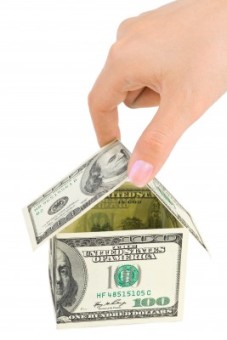House Poor: What It Means And How To Avoid It
 There is a good chance you have heard someone described as being house poor. What exactly does it mean? It is important to understand what it means to be house poor and how you can stay away from it.
There is a good chance you have heard someone described as being house poor. What exactly does it mean? It is important to understand what it means to be house poor and how you can stay away from it.
House Poor Means Spending A Significant Chunk Of Your Income On Housing
Being house-poor means different things for different people. In general, it means spending a significant amount of your monthly income on recurring expenses related to your house. A few examples include your mortgage, the interest on your mortgage, your property taxes, and HOA expenses. Owning a house can be expensive, and it is important for you to budget carefully. In general, you could not spend more than one-third of your monthly pay on your rent or your mortgage. If you are spending significantly more than this recommendation, you might qualify as house-poor.
How To Avoid Becoming House-Poor
Fortunately, there are several strategies you can follow if you want to avoid becoming house-poor. First, make sure you budget ahead of time. Understand exactly how much money you can spend on your home, and make every effort to stick to that number. Furthermore, before you purchase a house, make sure you get a home inspection completed. There are a lot of people who have their savings wiped out by unforeseen expenses. If you get an inspection before you buy a house, you can plan for those ahead of time. Finally, make sure you reduce your debt-to-income ratio before you buy a house. That way, you can qualify for the best home loan possible.
Do Not Spend More On Housing Than You Can Afford
In the end, it is critical for you to avoid spending more money on your house than you can afford. Remember that you should not spend more than one-third of your monthly pay on housing. If you do, your budget may be stretched thin and other areas, and you might have a difficult time covering other expenses. Do not hesitate to reach out to an expert who can help you find the right house for yourself and your family.

 If you are in the process of purchasing a home, it is critical for you to make sure that you budget appropriately. Unfortunately, there are a lot of people who commonly overlook closing expenses. Even though it is important for you to have enough money for your down payment, you need to make sure you cover closing costs as well. What is included in closing costs, and how much money do you need to budget?
If you are in the process of purchasing a home, it is critical for you to make sure that you budget appropriately. Unfortunately, there are a lot of people who commonly overlook closing expenses. Even though it is important for you to have enough money for your down payment, you need to make sure you cover closing costs as well. What is included in closing costs, and how much money do you need to budget? Are you planning on updating your house? A home improvement project can be expensive, but you don’t necessarily need to pay for the entire cost upfront. There are several loan options that can make it easier for you to get your home improvement project started right now. What are your options?
Are you planning on updating your house? A home improvement project can be expensive, but you don’t necessarily need to pay for the entire cost upfront. There are several loan options that can make it easier for you to get your home improvement project started right now. What are your options? U.S home prices grew at a near-record pace in January according to the National S&P Case-Shiller Home Price Index; year-over-year home prices rose by 19.20 percent in January as compared to December’s reading of 18.90 percent. Home prices rose 1.80 percent on a month-to-month basis from December to January.
U.S home prices grew at a near-record pace in January according to the National S&P Case-Shiller Home Price Index; year-over-year home prices rose by 19.20 percent in January as compared to December’s reading of 18.90 percent. Home prices rose 1.80 percent on a month-to-month basis from December to January. Becoming a homeowner for the first time is exciting. However, for many potential buyers, the process can also be confusing. Below is an overview of the steps you need to complete in order to buy your first home.
Becoming a homeowner for the first time is exciting. However, for many potential buyers, the process can also be confusing. Below is an overview of the steps you need to complete in order to buy your first home.